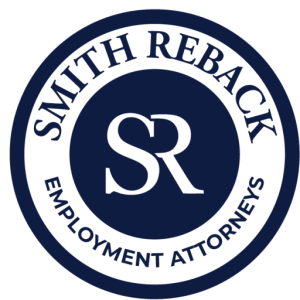Discrimination at work doesn’t always look like open hostility or obvious slurs. Often, it hides behind polite smiles, vague justifications, or “company policies” that don’t seem fair. These subtle patterns — if left unchecked — can slowly erode your confidence, limit your opportunities, and violate your legal rights.
At Smith & Reback, we’ve helped countless employees uncover the quiet, insidious ways discrimination operates in modern workplaces. If something doesn’t feel right about how you’re being treated, it’s worth paying attention — and it may be time to act.
1. Unequal Opportunities for Advancement
If you’re consistently passed over for promotions despite strong performance, or if less-qualified coworkers receive opportunities you’ve earned, this could signal bias. Employers often mask discrimination as “cultural fit” or “business needs,” but patterns of exclusion based on race, gender, age, or background may reveal something deeper.
2. Pay Discrepancies That Don’t Add Up
Being paid less than colleagues who perform similar work is one of the most common yet overlooked forms of discrimination. If salary differences can’t be explained by experience or performance, it might indicate unfair treatment based on a protected characteristic such as gender, ethnicity, or age.
3. Biased or Unequal Treatment by Supervisors
Sometimes bias shows up in tone, attitude, or treatment rather than words. If a supervisor micromanages you but gives others freedom, excludes you from meetings, or applies rules inconsistently, those are red flags. The law protects employees from differential treatment rooted in prejudice.
4. Hostile “Office Culture” or Microaggressions
Comments about your appearance, accent, religion, or background — even if framed as jokes — can create a hostile work environment. Repeated “small” acts, known as microaggressions, can add up to emotional harm and legal liability for employers.
5. Retaliation After Speaking Up
If you’ve reported unfair treatment or requested accommodations and then notice sudden changes — negative reviews, reduced hours, or social exclusion — that’s not a coincidence. Retaliation for asserting your rights is illegal under both California’s Fair Employment and Housing Act (FEHA) and federal law (Title VII).
Why You Shouldn’t Stay Silent
Subtle discrimination is often dismissed or ignored by employers, leaving victims feeling isolated or uncertain. But silence only protects those who violate the law. California provides strong legal safeguards for workers who experience or report discrimination. At Smith & Reback, we help employees gather evidence, build their cases, and hold employers accountable — because fairness at work isn’t a privilege, it’s a right.
How Smith & Reback Can Help
Our attorneys are dedicated exclusively to representing employees — never corporations. We combine deep legal knowledge with compassion and confidentiality. Whether you’ve faced pay disparities, biased evaluations, or retaliation, our team will fight to protect your rights and restore your dignity.
We help clients recover:
-
Lost wages and benefits
-
Compensation for emotional distress
-
Punitive damages for willful discrimination
-
Legal fees and court costs
Every case begins with one step — speaking up.
Take Action Today
If you’ve noticed subtle signs of discrimination or retaliation at work, don’t wait for things to get worse. Document your experiences and reach out for legal guidance as soon as possible.
📞 Call Smith & Reback today at 818-382-4000 to schedule your free, confidential consultation.
Our experienced discrimination lawyers will help you understand your rights, evaluate your case, and take decisive action toward justice.
At Smith & Reback, we don’t just fight discrimination — we fight for fairness, dignity, and your future.


